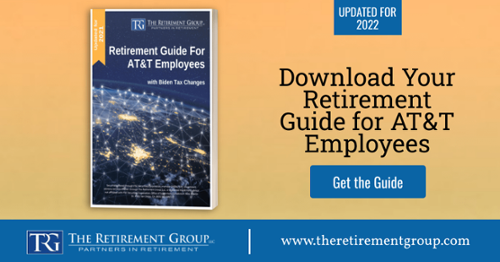What Fortune 500 Employees May Not Know About HSAs
Many Americans, whether insured or uninsured, report that health care costs are among the greatest recurring expenses throughout their lifetimes. With a Health Savings Account (HSA), many Fortune 500 employees can become better prepared for their expected and unexpected medical expenses.
HSA is a savings and investment account for those with high-deductible health plans (HDHPs) to help pay for out-of-pocket medical expenses. To be eligible for an HSA, you must be covered by an HDHP with no additional health insurance and not eligible for Medicare. Additionally, no one can claim you as a dependent on their tax return.
There is much more to HSAs than Fortune 500 employees may realize.
In comparison to other investment accounts, HSAs offer a multitude of additional benefits, including substantial tax advantages, making them a highly desirable retirement asset. Fortune 500 employees who are eligible for an HSA should take full advantage of it.
You May be Eligible for a Company Match in your HSA
Fortune 500 employees who contribute to their Health Savings Account through payroll deductions may be eligible for a corporate match. This matching contribution is available to those enrolled in an Fortune 500-insured High-deductible health plan, such as the Gold, Silver, or Bronze Medical plans. In addition to years of service, the HSA match is dependent on the type of coverage you are enrolled in: Family coverage, Employee and Spouse/Partner coverage, Employee and Child coverage, or Employee-only coverage.
HSA Contributions are Tax-deductible
Because HSA contributions are made with pre-tax dollars, they can reduce federal and state income tax liabilities. Several states tax HSA contributions; consult your state's tax laws for details. In addition, HSA contributions are exempt from FICA taxes and are not taxable income.
The annual HSA contribution limit for those with family coverage is $7,200, while the limit for those with self-only coverage is $3,600. Those 55 and older are permitted to contribute up to $1,000 annually. There are no income restrictions on the amount you can contribute to an HSA account.
You may make contributions to an HSA account until you reach age 65 and become Medicare-eligible. This means you can invest and save in an HSA over many years to help increase your retirement income, so long as you can leave the funds in the account.
HSA Funds can grow Tax-Free
The funds in your HSA grow tax-free. You are exempt from paying taxes on interest, capital gains, and dividends.
HSA Withdrawals are Tax-Free for Qualified Medical Expenses
The withdrawal of funds from an HSA to pay for qualified medical expenses is tax-free. Insurance deductibles, hospital bills, Medicare premiums, and long-term care services are examples.
Regarding retirement, this is a significant advantage of HSA accounts over IRAs and traditional 401(k)s. You are responsible for paying income taxes on withdrawals from these accounts, regardless of how the money is spent.
Historically, health care has been one of the largest expenses for retirees, and you should anticipate the same. A 65-year-old couple entering retirement this year can anticipate spending close to $295,000 on health care costs alone. Compared to withdrawals from other retirement accounts, which would result in taxable income, an HSA is unquestionably the best method to pay for health care costs in retirement.
Due to its numerous tax advantages, an HSA is a highly valuable retirement asset. An HSA offers three primary tax benefits: Contributions are tax-deductible, growth is tax-free, and withdrawals for qualified medical expenses are tax-free.
Investing in an HSA is not limited to medical expenses; however, withdrawals made for purposes other than qualified medical expenses will be taxed as ordinary income, similar to a Traditional 401(k) or IRA. If you withdraw funds from your HSA before age 65 for any other purpose, you will be subject to a 20% penalty in addition to income taxes on those funds.
HSAs Are Not Subject to RMDs
Beginning at age 72, you must begin taking Required Minimum Distributions (RMDs) from most retirement accounts. With an HSA, you can leave funds untouched for as long as you like.
You Don’t Lose it, if You Don’t Use it
Every year, funds in an HSA can be carried forward. In contrast to a Flexible Spending Account (FSA), you will not forfeit unused funds. In addition, HSAs are completely portable. As the account holder, you are free to take it with you when changing employment or leaving the workforce in your region.
Now that Fortune 500 employees are aware of what makes an HSA a valuable retirement income source, it is essential to note that an HSA may not be suitable for everyone. To qualify for an HSA, you must be enrolled in a High-Deductible Health Plan (HDHP). A HDHP makes the most sense for individuals who are robust and do not require frequent medical care, as well as those who can afford the high costs.
The primary function of a Health Savings Account (HSA) is to help individuals cover medical expenses with a tax deduction. Consider an HSA as an investment vehicle only if you are certain you can cover out-of-pocket expenses with other funds. Thus, you can enable the account balance to grow and take advantage of retirement tax breaks to the fullest extent.
Added Fact:
As Fortune 500 employees explore the potential benefits of Health Savings Accounts (HSAs), it's important to note that the flexibility of HSA funds extends beyond medical expenses. A lesser-known advantage lies in the potential for HSA funds to serve as a bridge between pre-retirement and post-retirement healthcare costs. HSAs can be strategically leveraged to cover healthcare expenses in retirement, helping to bridge the gap until Medicare eligibility at age 65. This unique feature could offer financial relief to Fortune 500 employees planning for the transition from employer-sponsored healthcare to Medicare, providing a smoother path to a secure and worry-free retirement. ("How to use your HSA for retirement." Fidelity, 2 July 2021).
Added Analogy:
Navigating retirement healthcare costs for Fortune 500 employees is akin to preparing for a cross-country road trip. Just as you'd meticulously plan your route and pack essentials for the journey, understanding Health Savings Accounts (HSAs) is crucial for a smooth ride into retirement. Much like a well-stocked travel fund that covers everything from gas to unexpected detours, HSAs offer a versatile financial tool to address both expected and unforeseen medical expenses in retirement. Think of HSAs as a reliable roadside assistance, helping you navigate the winding roads of healthcare costs without leaving you stranded. As you steer towards retirement, having a well-tuned HSA can be the difference between a scenic drive and a bumpy ride, ensuring a worry-free passage into the golden years.
Sponsored Ad




